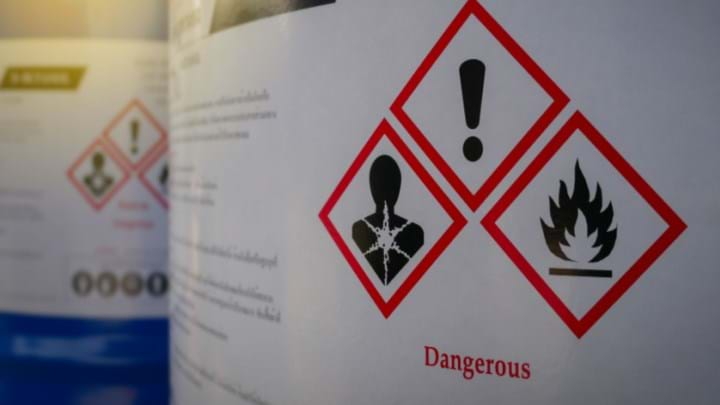Royal Society of Chemistry calls for a chemicals agency to overhaul ‘broken’ UK regulatory system

AHEAD of the UK’s 4 July general election, the Royal Society of Chemistry (RSC) is urging the next government to immediately establish a dedicated national chemicals agency to oversee and overhaul the country’s “broken chemicals regulation and management system”. The RCS warns of crisis, saying that the existing system could have a detrimental impact on industry, and the UK’s global standing.
The call comes as global evidence mounts about the health and environmental risks associated with mismanaged chemical substances, including PFAS, heavy metals, and herbicides.
With its recent report, The case for a national Chemicals Agency, RSC highlights issues in the existing chemicals system, including inefficiency, poor value for money, and lack of long-term planning. Gill Reid, president of RSC, added that under the current system, responsibilities fall on “a number of different under-resourced government departments and agencies leading to duplicated efforts, fragmentation, and confusion”.
“Put simply, our regulatory regime for chemicals is just not good enough,” Reid said. “We need a unified approach to chemicals regulation, just as we already benefit from a national agency to oversee food standards and a national regulator of health products and medicines.”
Tim Doggett, CEO of chemical supply chain trade body Chemical Business Association, said: “While chemicals regulation isn’t necessarily broken, we must take a joined-up approach to ensure that in the UK we have the ability to deliver meaningful change for the better.”
Meanwhile, the trade body Chemical Industries Association argued that calling for a chemicals agency was “premature”. However, it did agree with the need for clarity.
Fixing a broken system
RSC proposes that the government implement a national chemicals agency, which would serve as a “gold standard” for a future chemicals regime, serving to safeguard human health and the environment while creating a simpler system for business. It would use best science and evidence to prevent harm to health and the environment, promote responsible innovation, economic growth, and trade, and maximise taxpayer value for money.
Its responsibilities would include:
- providing a centralised home for chemicals information, monitoring data, and technical data, as well as regulatory power in defined areas
- consolidating information about chemicals made, used, or shipped into the UK
- supporting efforts to improve chemical life cycles and using regulation to enable circular economy
- coordinating and providing advice and support to existing regulators such as the Health and Safety Executive and the Environmental Agency
- acting as a centre of excellence to attract and develop a workforce skilled in chemicals research, testing, and regulation and provide a place where careers could be nurtured and developed
- liaising with the rest of the world to influence chemicals management and regulation
RSC expects that the chemicals agency it is advocating would enable the UK to become a global leader in chemicals research, innovation, and regulation, attracting further inward investment.
It further recommends supporting the new system with a national centre for chemicals and risk research (CCRR), along with a cross-governmental chemicals regulation training and networking programme.
The CCRR would be tasked with maintaining “world-class science” for application in chemicals evaluations. Its work would include researching, collecting, managing, and interpreting data on chemicals, chemical safety, exposure science, and new approach methods. It would also provide independent advice to government both in the UK and internationally, develop new approaches to innovation, and provide science and technology training to support the next generation of regulators and industry scientists.
Meanwhile, the cross-governmental chemicals regulation training and networking programme would focus on developing a pool of talent in government that could be deployed to the chemicals agency or CCRR. It would help close skills gaps and improve career development and retention in the civil area.
Further immediate actions
RSC calls for three additional immediate actions to improve national chemical regulation and management.
This includes asking government to provide a timeline for UK REACH reform and the likely new processes for registration, evaluation, authorisation, and restriction of chemicals. Following Brexit, the UK is still working to establish a workable domestic system for chemicals regulation. It is currently open to stakeholder consultation on potential changes to UK REACH.
RSC also calls on the next UK government to release its long-awaited chemicals strategy, setting out the nation’s ambitions for the chemicals industry, as well as negotiations for access to the European Chemicals Agency’s chemical data.
Doggett said: “Events over recent years have highlighted our critical reliance on supply chains as well as their vulnerabilities, and while the chemical industry might be seen as polluter of the past, it is the key to a sustainable future. For these reasons and more, collaboration and a clear strategy is more essential than ever, and one which accepts the realities and necessities of chemicals, and realises the challenges and the opportunities that we face and must take action to deal with.”
Recent Editions
Catch up on the latest news, views and jobs from The Chemical Engineer. Below are the four latest issues. View a wider selection of the archive from within the Magazine section of this site.




